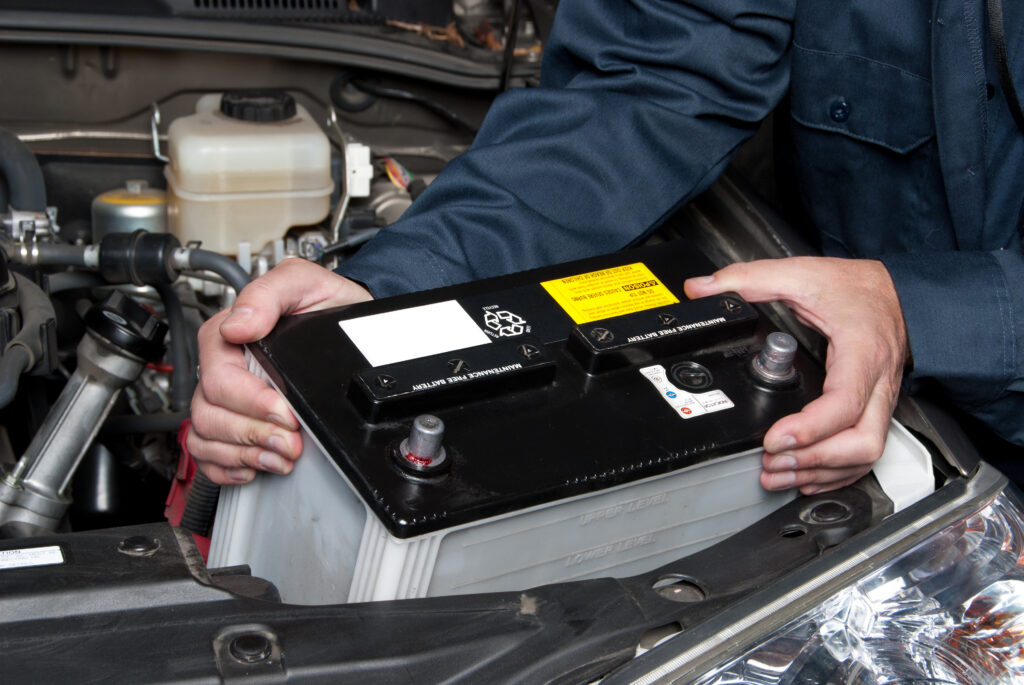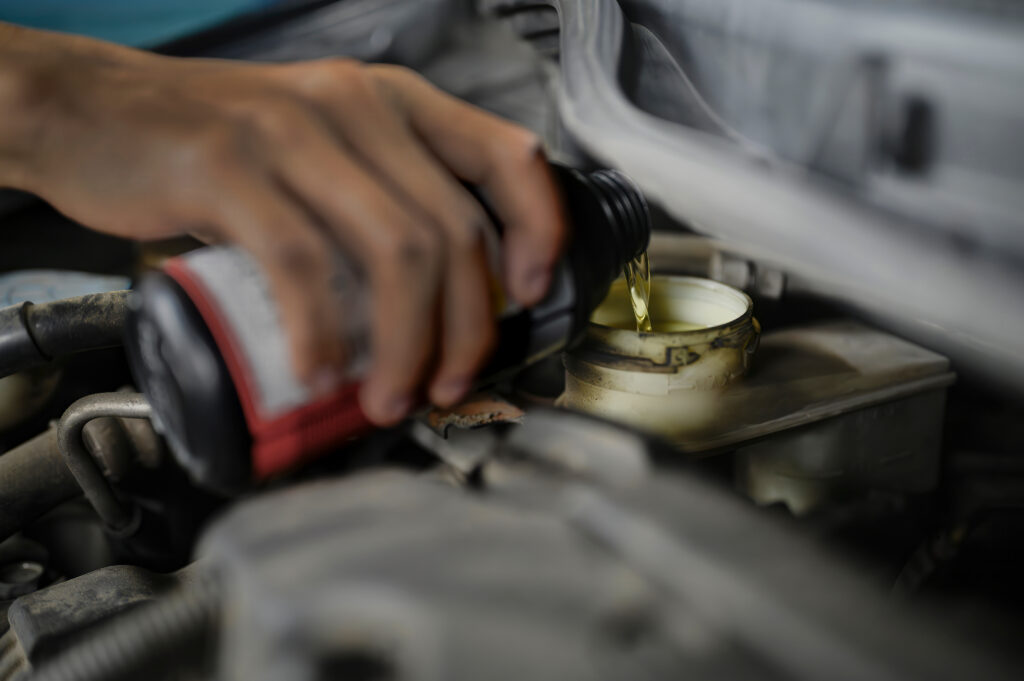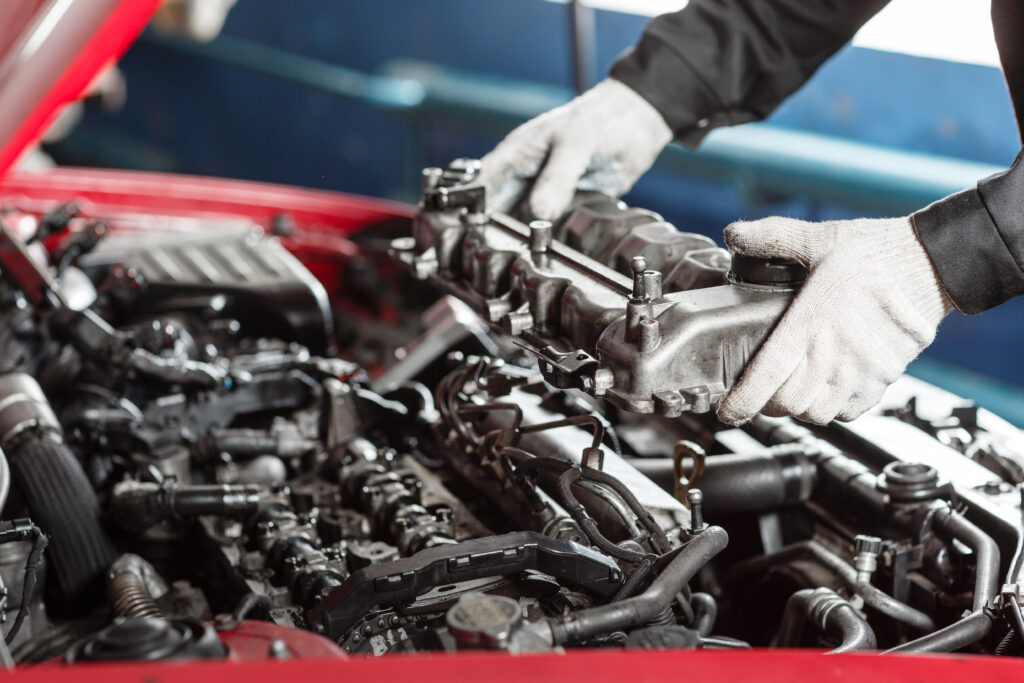A fuel filter isn’t the first thing that comes to mind when we think about our vehicles. So what is it anyway? Why do I need to change it? These are questions that spring to mind when we hear that we need to have a fuel filter replaced. Fuel filters are crucial for giving your engine better performance.
At Naylor’s Auto Repair, we help Boise drivers stay ahead of costly engine problems with proactive maintenance and inspections. Let’s break down exactly what a fuel filter does and why you should keep it maintained.
What Is a Fuel Filter?
You can think about fuel filters in the same way that you would buy an air filter for your home. When you want to purify your air from dust, bacteria, and other invisible impurities, you pick up an air filter to clean up the air you breathe each day. Just as you want the air to be clean before entering your body, you want the gasoline to be clean before entering your car’s engine.
Harmful bacteria and dust can affect our bodies after long periods of time, and all that debris will adversely affect your car’s engine in the same way.
Fuel filters are located between the fuel tank and the engine, working as a gas purifier. You can check your car’s documentation to find out where the fuel filter is located, as it can vary between vehicles.
How Often Should I Change It?
Fuel filters will get clogged up over time from all of the debris they clean from the gas. Just as you would empty out the dust particles from an air filter, you’ll want to empty the dirt and grime from a fuel filter. A clogged-up filter stops optimal fuel flow and allows dirt particles to reach your fuel injector.
Newer vehicles can drive about 60,000 miles before needing a filter change, but filters may need to be replaced every 30,000 miles if your vehicle is older. If you put off a filter change for too long, you can risk engine failure because the fuel pump needs to work extra hard to overcome the dirt-clogged fuel filter.
Staying on top of routine services like this is a key part of auto maintenance services that maintain a healthy engine. Small, affordable services today can help prevent major repairs tomorrow.
You can expect these great benefits from keeping your fuel filter clean:
Better fuel efficiency
Boosts engine power
Reduced emissions
Increases engine life
Protects fuel injectors
Improves engine performance
Symptoms of a Bad Fuel Filter
There are a few signs that you’ll start to experience if you’ve been ignoring your fuel filter for too long. You may feel a decrease in engine power when driving uphill or towing heavy objects like a trailer. A rough start when firing up the engine is also a good sign that your filter is clogged up. Sluggish acceleration, or hesitation, whenever you put your foot on the gas, will also signal that you need to change out filters.
In some cases, a clogged fuel filter can even trigger dashboard warning lights. If you’re unsure whether the issue is fuel-related or something else, it’s important to have it professionally diagnosed. Learn more about what to do when your check engine light comes on to avoid unnecessary damage.
However, if you don’t see these signs and it’s been a while since you’ve thought about the fuel filter, your filter is most likely dirty. Think about how many months or miles it has been since the last time you had it changed, and consider booking another appointment. You don’t want to wait until the signs appear because you will already be putting strain on the engine by then.
When you think about fuel filters like you do air filters, you can get a better perspective on how important they are for the health of your vehicle. You wouldn’t want to breathe in a lot of dust for months on end, and neither does an engine.
Every part of a car is necessary for the machine to function properly. And even though we may not have heard of them, fuel filters serve a big purpose. Fuel filters help clean out debris and dirt from the gasoline so that these particles don’t negatively impact your car’s performance. When you get your filter replaced at the recommended mileage, you can prolong the life of your vehicle.
Frequently Asked Questions About Fuel Filters
What happens if you don’t replace your fuel filter?
If you don’t replace your fuel filter, it can become clogged and restrict fuel flow to the engine. Over time, this can cause poor acceleration, engine misfires, difficulty starting, fuel pump strain, and in severe cases, engine damage.
Can a bad fuel filter cause a check engine light?
Yes, a clogged or failing fuel filter can trigger the check engine light. Restricted fuel flow can affect engine performance and cause the vehicle’s computer to detect irregular fuel pressure or misfires.
Is replacing a fuel filter expensive?
Fuel filter replacement is generally considered a relatively affordable maintenance service compared to major engine repairs. The cost can vary depending on the vehicle’s make and model, as some filters are easier to access than others.
Are fuel filters different for diesel and gasoline engines?
Yes, diesel engines often use different types of fuel filters and may require more frequent replacement because diesel fuel systems are highly sensitive to contaminants. Diesel filters may also include water separators to prevent moisture from entering the fuel system.
How do I know if my fuel filter needs replacement if I don’t see symptoms?
Even if you don’t notice performance issues, your owner’s manual will list a recommended replacement interval. Following the manufacturer’s maintenance schedule is the best way to avoid unexpected problems and keep your engine running efficiently.
Schedule Your Fuel Filter Service in Boise
If you haven’t had your fuel filter replaced in a while, reach out to Naylor’s. Our experts will inspect your fuel system, recommend the right maintenance schedule, and help you get the maximum life out of your engine.
Ready to book your appointment? Contact our team today through our Contact Page and let us keep your vehicle running clean and efficient for miles to come.





